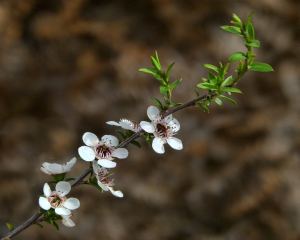
Is Mānuka Honey good for a cough and cold
Mānuka Honey, renowned for its potent antibacterial properties, therapeutic benefits, high antioxidants and supports the immune system is nonetheless a standout product used for almost

One of the greatest current threats to our bees in New Zealand is the varroa mite, Varroa Destructor.
This tiny invader was first detected in New Zealand in 2000, and despite restrictions on hive movements and a massive attempt to confine it, it spread throughout the country.
Varroa feed on the fat body of all stages of honeybees from larvae to adults (the misconception of them being ‘bloodsuckers’ was debunked by the incredible Dr. Sammy Ramsey, check him out here).
While this might not sound too bad, the fat body in bees is actually essential for proper immune function, detoxification, and over-winter survival. The mites also enhance the transmission of viruses in bees, such as the Deformed Wing Virus (DWV).
A high mite count in a hive can be confirmed by seeing dead larvae curled inside their cells, worker bees uncapping and removing infested pupae, mites in transit on the back of adult bees, and emerging bees displaying the crinkly wings of DWV. When these symptoms are displayed, it may be very difficult to bring the hive back to a healthy status.

Unfortunately, mites have become something we have to live with and control as best as we can. We can treat with miticides twice a year and monitor mite levels in our hives to make sure the treatments work, but it will be near impossible to eradicate this pest from New Zealand. Many hives still succumb to this pest, and production is certainly affected in every beekeeping operation.
Before Winter, we treated our hives with mite strips which should reduce the mites significantly enough for the bees to cope through the colder months. It is unlikely any treatment will kill 100% of mites, but we will re-check in Spring and treat again as the bee numbers build up.
For a more in-depth discussion on varroa mites, head over to Dr. Ramsey’s page and click the “research” tab for a reputable source of information.
Learn more about our H&M story.

Mānuka Honey, renowned for its potent antibacterial properties, therapeutic benefits, high antioxidants and supports the immune system is nonetheless a standout product used for almost

Mānuka Honey has been around for years and was considered to be taonga, or treasure to Māori people. It was mainly used for its health
Subscribe now to keep reading and get access to the full archive.